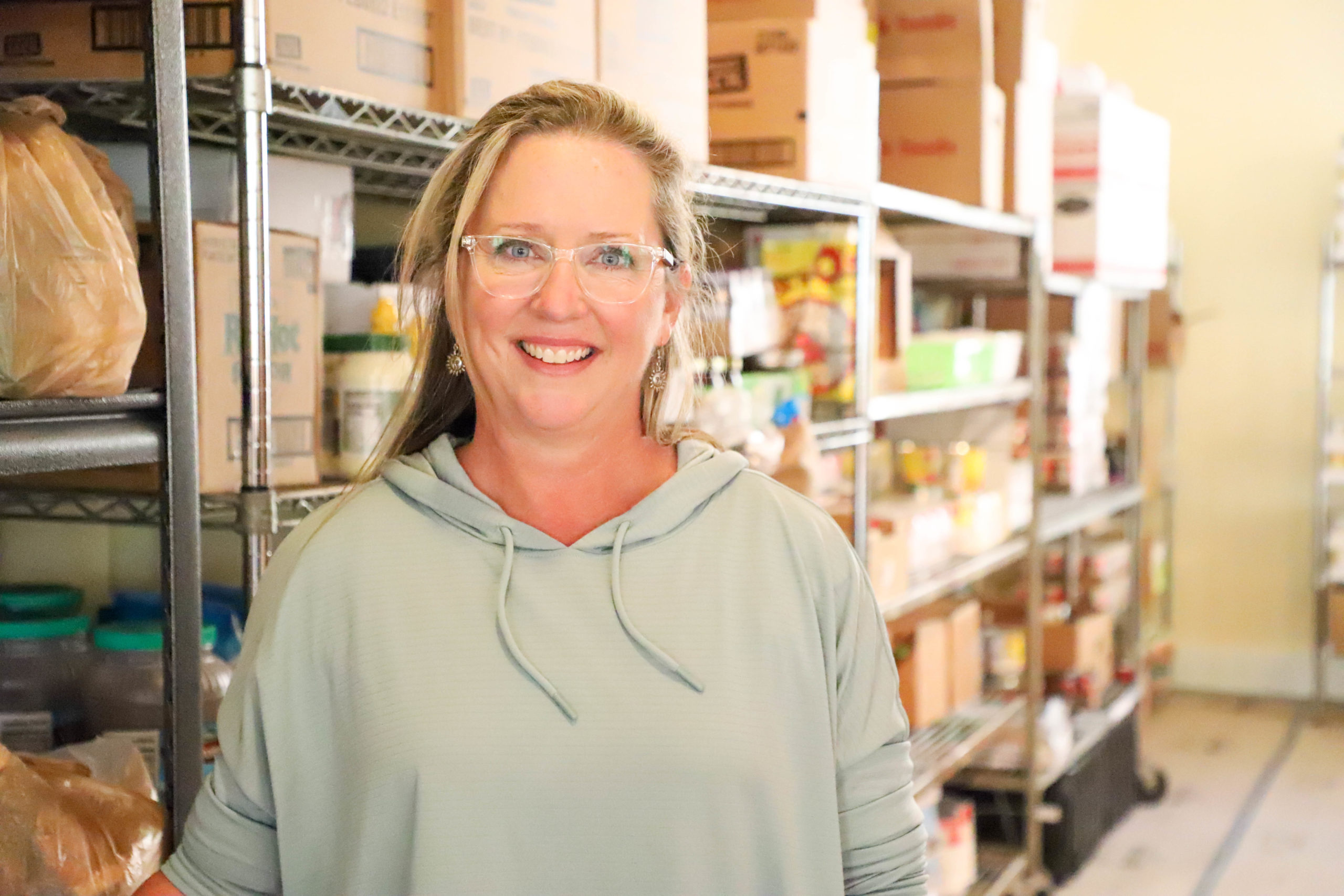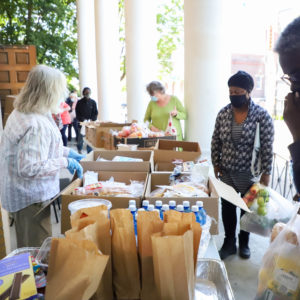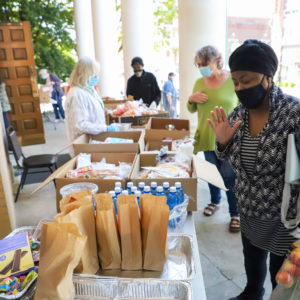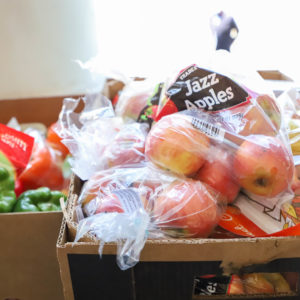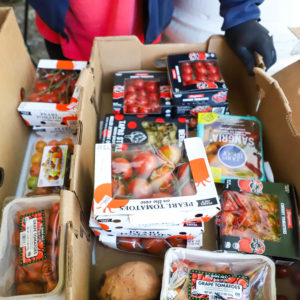An Interview with Steph Rollen of First Congregational Church’s Food Justice Ministry
Words by Heidi Rupke

Like many of us over the last eighteen months, Steph Rollen has had to rethink and retool the way she does her work. But her mission remains the same: to bring food justice to neighbors in need through high-quality meals and human connections. Steph, Director of the Food Justice Ministry at First Congregational Church, and her team of volunteers distribute cooked food and groceries to dozens of vulnerable neighbors each weekday. From last year’s communal tables, a pantry where folks could “shop” for groceries for free, and hugs, Steph has transitioned to pandemic-friendly bagged lunches and food boxes distributed by neighborhood captains. But even if the logistics of the operation look different this year, it is driven by the same love for neighbors and a desire to see everyone thrive.
“When I cook, I like to make something warm and happy for people,” says Steph.
Sandwich bags, which are available at lunchtime five days a week, include items cooked by Steph and her team two or three times per week. The cooked item might be a casserole or soup or whatever Steph can make with what she has on hand. Anyone who needs a lunch is welcome to one. In addition, people who complete an intake form can receive a box of food every other week. This box contains some combination of cereal, rice, beans, pasta, pasta sauce, mixed veg and fruit, dried fruit, a salty snack, a sweet snack and three or four types of protein (tuna, lentils, peanut butter, ham, salmon or chicken.)
Since long lines of people waiting to visit the food pantry can present an increased risk for COVID-19 transmission, Steph and her team developed a new system of distribution. Steph’s team now packs boxes and delivers them to neighborhood captains. Then neighborhood captains bring them to the folks who live near them. These volunteer captains are people with integrity who can transport boxes of food within their neighborhoods. Currently about 165 boxes per week, each with 15-20 food items, are going out from First Congo’s kitchen.
The rescued food for this outreach comes from Trader Joe’s by way of Resource Redistribution Ministries and the Mid-South Food Bank. While the items from the food bank can be ordered ahead, the contents of the Trader Joe’s delivery are always a surprise. The surprise spurs Steph’s creativity as a chef.
“If I get peppers, onions and zucchini, that’s a great start for an Italian dish. When I get jalapenos, I think Mexican. Then I think about something with rice and what spices to mix with that: cumin, garlic, oregano cilantro. I don’t want to bore people’s palettes, so I keep mixing it up,” says Steph.
The Food Justice ministry serves the underserved, the working poor, the homeless and neighbors in need. They serve people who ride up on their bikes or walk or take the bus or sometimes drive. The array of people is constantly changing as new folks come into town or leave and new needs arise.

While the Food Justice Ministry meets needs for food, it also meets a need for community and shared responsibility for food. In addition to neighborhood captains distributing food, each person who receives food is encouraged to share with others who may have needs but is unable to pick up from the church. Steph asks that people use whatever they can, share what they can’t and never throw food away.
“They enjoy helping the community too,” says Steph.
The Food Justice Ministry can always use more support from the wider community through monetary donations, help with packing boxes and transporting boxes to neighborhood captains. They need recycled boxes (165 per week!) for packing the food. They need help getting the word out about their services and mission.

The Environmental Protection Agency, the Natural Resources Defense Foundation and other national groups aim to help the U.S. with its endemic food waste problem. Currently, up to 40% of food grown for human consumption is wasted. In Memphis, people like Steph are implementing food waste reduction measures every day. Sharing food with others is a key strategy for reducing food waste. So is composting, which Steph and her team do when the food is no longer appropriate for people to eat. This, like the sharing, is an act of love: investing in soil for more fruits and vegetables to be grown for all to eat and enjoy.

